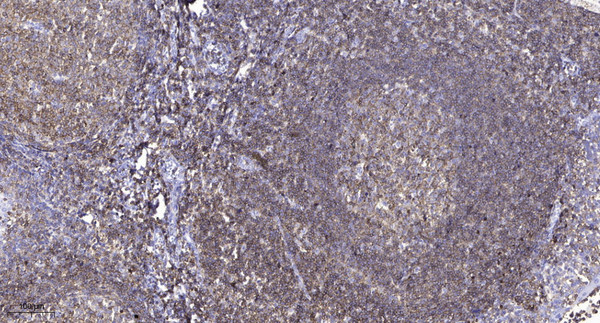| Post Translational Modifications | Phosphorylated. |
| Function | Electrogenic voltage-dependent transporter that mediates the transport of a variety of organic cations such as endogenous bioactive amines, cationic drugs and xenobiotics. Functions as a pH- and Na(+)-independent, bidirectional transporter. Cation cellular uptake or release is driven by the electrochemical potential (i.e. membrane potential and concentration gradient) and substrate selectivity. Hydrophobicity is a major requirement for recognition in polyvalent substrates and inhibitors. Primarily expressed at the basolateral membrane of hepatocytes and proximal tubules and involved in the uptake and disposition of cationic compounds by hepatic and renal clearance from the blood flow. Most likely functions as an uptake carrier in enterocytes contributing to the intestinal elimination of organic cations from the systemic circulation. Transports endogenous monoamines such as N-1-methylnicotinamide (NMN), guanidine, histamine, neurotransmitters dopamine, serotonin and adrenaline. Also transports natural polyamines such as spermidine, agmatine and putrescine at low affinity, but relatively high turnover. Involved in the hepatic uptake of vitamin B1/thiamine, hence regulating hepatic lipid and energy metabolism. Mediates the bidirectional transport of acetylcholine (ACh) at the apical membrane of ciliated cell in airway epithelium, thereby playing a role in luminal release of ACh from bronchial epithelium. Transports dopaminergic neuromodulators cyclo(his-pro) and salsolinol with lower efficency. Also capable of transporting non-amine endogenous compounds such as prostaglandin E2 (PGE2) and prostaglandin F2-alpha (PGF2-alpha). May contribute to the transport of cationic compounds in testes across the blood-testis-barrier (Probable). Also involved in the uptake of xenobiotics tributylmethylammonium (TBuMA), quinidine, N-methyl-quinine (NMQ), N-methyl-quinidine (NMQD) N-(4,4-azo-n-pentyl)-quinuclidine (APQ), azidoprocainamide methoiodide (AMP), N-(4,4-azo-n-pentyl)-21-deoxyajmalinium (APDA) and 4-(4-(dimethylamino)styryl)-N-methylpyridinium (ASP). Isoform 1: Mediates the uptake of 1-methyl-4-phenylpyridinium (MPP(+)). Isoform 2: Not able to uptake 1-methyl-4-phenylpyridinium (MPP(+)). Isoform 3: Not able to uptake 1-methyl-4-phenylpyridinium (MPP(+)). Isoform 4: Not able to uptake 1-methyl-4-phenylpyridinium (MPP(+)). |
| Protein Name | Solute Carrier Family 22 Member 1Organic Cation Transporter 1Hoct1 |
| Database Links | Reactome: R-HSA-112311Reactome: R-HSA-181430Reactome: R-HSA-2161517Reactome: R-HSA-442660Reactome: R-HSA-549127Reactome: R-HSA-9793528 |
| Cellular Localisation | Basolateral Cell MembraneMulti-Pass Membrane ProteinApical Cell MembraneLateral Cell MembraneBasal Cell MembraneCell MembraneLocalized To The Sinusoidal/Basolateral Membrane Of HepatocytesMainly Localized To The Basolateral Membrane Of Renal Proximal Tubular CellsHoweverAlso Identified At The Apical Side Of Proximal Tubular CellsMainly Expressed At The Lateral Membrane Of EnterocytesAlso Observed At The Apical Side Of EnterocytesLocalized To The Luminal/Apical Membrane Of Ciliated Epithelial Cells In BronchiLocalized To The Basal Membrane Of Sertoli Cells |
| Alternative Antibody Names | Anti-Solute Carrier Family 22 Member 1 antibodyAnti-Organic Cation Transporter 1 antibodyAnti-Hoct1 antibodyAnti-SLC22A1 antibodyAnti-OCT1 antibody |
Information sourced from Uniprot.org








